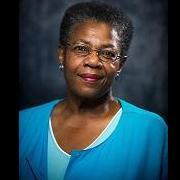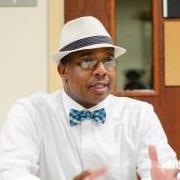-
Posts
2,414 -
Joined
-
Last visited
-
Days Won
91
richardmurray's Achievements
Single Status Update
See all updates by richardmurray
-
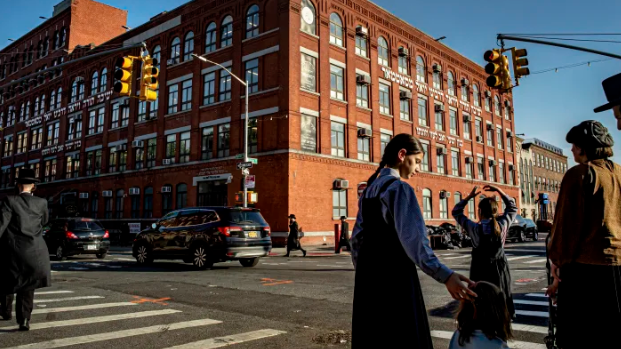
Students pour out of a Jewish school, known as a yeshiva, in Brooklyn, June 8, 2022. (Jonah Markowitz/The New York Times)
New York Lawmakers Call for More Oversight of Hasidic Schools
Eliza Shapiro, Brian M. Rosenthal and Nicholas Fandos
Tue, September 13, 2022 at 7:51 AM·5 min read
NEW YORK — Top New York officials voiced grave concerns about the quality of education in Hasidic Jewish private schools on Monday, a day after The New York Times revealed that many of the schools taught only rudimentary English and math and virtually no science or history.
Two Democratic congressmen — Jerrold Nadler, chair of the House Judiciary Committee, and Hakeem Jeffries, chair of the House Democratic Caucus — said they had serious concerns, with Nadler saying it was clear that some of the Hasidic schools were “utterly failing.”
“It is a paramount duty of government to make sure that all children — whether it’s those educated in parochial, private or public schools — are provided a quality education,” said Nadler, the senior Jewish member of the House, whose current district encompasses a major Hasidic neighborhood and who was himself yeshiva-educated. “It is our duty to all New York students to ensure that the law is enforced.”
Sign up for The Morning newsletter from the New York Times
Jeffries, who represents parts of central Brooklyn, called for “a rigorous inquiry in order to make sure that the health and well-being of all children is protected.”
Daniel Goldman, who recently won a contested Democratic primary for a new congressional seat that includes Hasidic areas in Brooklyn, said he hoped the schools would work to comply with the law, adding that the Times report “paints a damning picture of an inadequate secular education that does not comply with state law.”
At the state level — where politicians routinely court the cohesive Hasidic voting bloc — the state Senate majority leader, Andrea Stewart-Cousins, said she was concerned about the lack of secular education in the Hasidic schools.
“The allegations in the story are deeply disturbing and must be addressed,” she said.
State Sen. Julia Salazar and Assemblywoman Emily Gallagher, both Democrats who represent heavily Hasidic Williamsburg, Brooklyn, said they were particularly alarmed by accounts of corporal punishment in the schools and would introduce legislation to ban such punishments going forward.
Other leaders, including Gov. Kathy Hochul and members of a powerful state education board, showed less willingness to criticize the Hasidic schools.
Hochul, a Democrat who has sought to appeal to Jewish voters before this fall’s gubernatorial election, declined to take a position on the Hasidic schools. She is ahead in polls, but, only a year after taking office, is still forging relationships with key groups across the state.
“People understand that this is outside the purview of the governor,” Hochul said Monday at an event in Harlem.
Although the state Board of Regents, not the governor, controls the state education department, Hochul is the most powerful politician in New York and can have significant influence over education issues.
For their part, members of the Board of Regents made no mention of the Times report in discussions Monday before an expected vote on new rules that would hold private schools, including the Hasidic schools, known as yeshivas, to minimum academic standards.
An attorney who has represented many Hasidic yeshivas, Avi Schick, recently said that Hochul’s chance of being reelected this November could be threatened by the Regents vote, even though the governor has not taken a public position on the rules.
Other New York Democratic officials either did not respond to inquiries or declined to comment Monday about the Hasidic schools, including Sen. Chuck Schumer, the majority leader; Sen. Kirsten Gillibrand; and Rep. Sean Patrick Maloney, chief of the House Democratic campaign committee.
New York Republicans, including Rep. Lee Zeldin, defended the schools and criticized the Times report. At a campaign event outside City Hall on Monday, Zeldin, who is running for governor against Hochul and is Jewish, suggested that public schools ought to be emulating “the values” of Hasidic schools, not the other way around.
Other state Republicans said they believed the government should not interfere with private religious education or parents’ ability to choose where their children are educated.
Benine Hamdan, the long-shot Republican candidate challenging Goldman in Brooklyn, said she opposed the state regulations, taking a shot at critical race theory. “While public schools are teaching CRT and sexuality, Hasidic schools should continue to have the right to teach Judaism,” she said.
“At my core, I believe all parents have the right to choose the educational setting they think is best for their children,” said Mark Martucci, a state senator who represents a district just north of New York City and added that he had toured yeshivas and had been impressed by the students.
In a state where Republicans are largely locked out of power, the party has been increasing its outreach to Hasidic voters who have consistently voted for Democrats in local elections but have begun favoring Republicans, including former President Donald Trump, in national races.
Published on Sunday, the Times investigation showed that Hasidic schools appear to be operating in violation of state law by denying thousands of students a basic education. The community operates more than 100 all-boys schools across Brooklyn and the lower Hudson Valley, which have received more than $1 billion in government money over the past four years alone.
The schools typically provide only 90 minutes a day of secular instruction, just four days per week, and only for boys ages 8 to 12. As a result, the students are failing to learn secular subjects at extraordinarily high rates, the Times found. More than 99% of students who took standardized tests in 2019 failed, according to state data.
At a news conference Monday, Mayor Eric Adams of New York City said he was “not concerned” about the Times’ findings but stressed that his administration was continuing a long-delayed city investigation into some Hasidic schools.
“I’m not going to look at a story. I want a thorough investigation. I want an independent review, and that’s what the city has to do. And we’re going to look at that,” Adams said. The mayor added that any instances of child abuse in the schools should be reported and investigated.
Over the past few years, Hasidic leaders have made keeping government out of schools their top political priority and have relied on officials elected from their community to help block the regulations.
One Hasidic politician, David Schwartz, a Hasidic district leader in Brooklyn, disputed reports of problems in the schools, including regular use of corporal punishment, saying, “I and my community — tens of thousands of caring parents and educators — are unfairly being paint-brushed due to the accounts of a few.”
© 2022 The New York Times Company
ARTICLE
https://www.yahoo.com/news/york-lawmakers-call-more-oversight-115132238.html
MY THOUGHTS
I want to first restate the key points in the article.
- The white jewish schools are operating with some level of illegality for an extended time
- government officials at the federal level <senator chuck schumer> new york state <governor hochul> or new york city level <mayor adams>are so frightened of the white jewish voting block aside the white jewish financial power that none have accepted the findings as true publicly while all want an extended time of deliberations which they would not give the black community or any part of the black community
- The defenders of the white jewish schools say parents have the right to place children where they want and to preserve the heritage in their community, in this case jewish. I think of the Black descended of enslaved MOVE movement in philadelphia and how a black mayor treated them for wanting to preserve their own culture.
- The white jewish schools , over one hundred all boys schools at least, received over one billion dollars in four years while providing per week only four days with ninety minute secular instruction.
- More than ninety nine percent of students in the white jewish private schools who took standardized tests failed in 2019, this is 2022.
Now what is my position. I don't care about: the white jewish schools whether committing illegality or not, the financial power of the white jewish community in New York City, the influence by the white jewish community on government officials<federal, state, city>, the white jewish community's heritage or culture being preserved or maintained, or the failure of white jewish students.
What I care about is the Black community all throughout humanity and in particular, the black community in New York City.
The Black community in New York City doesn't have a large private school system internally and yet Black teachers in public schools have been removed for the crime of disagreeing with administrators, on a first time offense, not for years of neglect doing their job.
I know the black community in NYC is fiscally poor, it started that way for enslaving black people was legal when new york was new amsterdam before the creation of the United States America. Sequentially, the Black community in NYC doesn't demand the trepidation from elected officials even though it historically votes as a block too.
From the Black Panthers to The Nation of Islam to the Rastafarians the Black community in NYC tends to have the loudest opposition internally to heritages or cultures from within a community. I can see a Black newscaster in New york city asking, what does it mean to have a Black school.
The black children of New York City have a financially impotent Black adult community, which includes me, who in majority, I am part of the black adult minority, continually preaches to them about merit or equality or voting while providing black children in new york city nothing. The black adult community in new york city, includes me, have failed the black children of new york city hiding behind a cheap veil of individual decency or merit when in truth we black adults are just flat broke and are too proud to admit it. Any Black adult who reads this, stop telling black children about the need to be more educated and start making money and giving it to black kids regardless of their scholastic quality. Any Black adult who reads this, stop telling black children about competitive spirit and start making sure governments give money for black kids to enjoy life more regardless of their demeanor. Any Black adult who reads this, stop telling black kids what they have to do and start telling black kids what you can't do, admit your impotency your weakness your poverty and tell the truth of you to black children.
I feel sorry for Black Children in new york city. I was once one, and while I was fortunate in the time span of my childhood from a homelife perspective or communal perspective, I despised local media in new york city which was and is ninety nine percent white owned. White owned new york city media never stopped reminding black children how they needed to do better in my childhood days, comparing black children to various children anywhere with one thing in common. At the time of comparison they are better than black children in New York City. While the same white owned news media of New York City, couldn't find time to discover how the French don't count the schools in the Balieues as part of their main surveys to the world , the japanese don't count the children who don't come to school at higher rates, the schools in the white towns or villages in the midwest where the curriculum is lower isn't admitted in the assessment to comparing the black children in new york city. Black children in NYC have been falsely attributed as consistent failures when in truth it is a mere trick of statistics. Any thing can be proven statistically, anything, the key is in the details. Black children in education have been attacked by statistical warfare and black adults, like me,let it happen.
-

Japan's Bad Education
Everyone's equally special—and stifled—in the country's school system.
By Minami Funakoshi
Aug. 26, 2013 12:54 pm ET
Prime Minister Shinzo Abe wants to globalize Japan's ossified education system, pledging to double the number of Japanese students studying abroad from 60,000 to 120,000 by 2020 as part of his long-term growth strategy. It's tempting to believe in this quick fix, and exposing Japanese youth to the world may indeed have benefits. But there will be no lasting change in the system unless Mr. Abe tackles the core cultural issue: Japan's insistence on homogeneity and discomfort with individuality.
Under the current education system, Japanese students devote most of their effort to memorizing facts needed to pass exams. Even kindergarten students sometimes go to afterschool cram schools to prepare for elementary school entrance exams. They have little opportunity to think critically or develop their own ideas. Faced with crushing stress and monotony, students often act out. While outside observers tend to think of Japanese schools as academically successful, the Japanese themselves have long understood their educational system's shortcomings and tried to fix them—albeit unsuccessfully.
In the early '70s the Japan Teachers Union, alarmed by a surge in classroom violence, bullying, truancy and suicides, began to push a new system known as yutori, or breathing space. It aimed to reduce school-related stress by giving students the freedom to freely exercise their imagination, develop intellectual curiosity and grow into valuable talent.
That was a noble goal, but the result was quite the opposite. Many teachers demonized competition, suppressed individuality, punished intellectual rigor and encouraged mediocrity in the name of egalitarianism. At school sports events, students who could sprint faster had to stop and wait so that everyone could cross the finish line hand-in-hand. Textbooks were dumbed down—the mathematical constant pi was reduced to just "3"—and classes trudged at turtle pace, adjusting to slow learners.
In order for the yutori reform to succeed, teachers needed to establish an environment where students could freely ask questions, express their opinions and explore new ideas. But many teachers failed to do so because they did not know how to encourage individuality while avoiding favoritism. Their solution: force everyone to act the same.
My first grade teacher at a Japanese public school once yelled at me, "Put your hand down. You're trying to show off too much. It disturbs the order. It's not good for the classroom environment." She ordered me to redo the math worksheet—which I answered correctly—three times because I finished it before other students did.
The basic setup of the classroom aggravated the situation. Many public schools are overcrowded and understaffed—at my school, 41 students were packed into a room barely large enough to fit our desks. With so many students in one class, it was impossible to give everyone a chance to speak. As a result, no one—except for the teacher—ever spoke. Everyone had a fair share of neglect.
Because there was almost no personal interaction, teachers often did not treat students as individuals. The lack of real connection between the two groups led to inflexible problem solving, which drove classrooms to excessive regimentation or chaos. Students rebelled at the suppressive system, to which schools responded with an iron fist. In other cases, students attacked teachers, sending them to hospitals or causing them to resign.
Even when teachers managed to nurture positive relationships with students, there still was no "breathing space" because of the juken, Japan's university entrance exam. Creativity didn't get you into top universities; memorizing facts and regurgitating the "right" answers did. While public textbooks became thinner and students spent less time at school, they spent late nights at private cram schools. Public school became a waste of time.
Some say Japan is the modern Galapagos: a developed but isolated island. In the era of globalization, this isolation can be fatal. Yutori bred a generation of Japanese with few skills to survive in the global market. As Japan's population shrinks and its economy stagnates, the country needs to send students abroad to nurture the innovative leaders it needs to change course—hence Mr. Abe's plan to double the number of students studying at foreign universities.
But simply sending Japanese students abroad is not enough. Many are unlikely to return. I have no plan to go back to Japan after finishing my studies at Yale, at least not immediately. Most of my friends studying abroad feel the same.
Even if foreign-educated students do return to Japan, they can't fundamentally reform the education system, for they are but a privileged minority. For real reform to take place, Japanese schools need to change.
Schools should hire more teachers and shrink class sizes, which would encourage personal interactions and bring more opportunities for expressing opinions. The government should abolish, or at least reform, the university entrance exam system so that it tests students' critical thinking and allows them to answer creatively.
Creativity, critical thinking and freedom of expression are not only about developing your own ideas, but being open to new or conflicting viewpoints. Schools—and Japan as a society—must stop equating disagreements with disorder and learn to cope with differences.
Ms. Funakoshi was a Robert L. Bartley fellow at The Wall Street Journal Asia's editorial page.
ARTICLE
https://www.wsj.com/articles/SB10001424127887323906804579036560001960816
A youtube video to show
-

Upset by New York Times expose on Hasidic schools? That's what GOP wants for all American kids
Upset by New York Times exposé on Hasidic schools? That's what GOP wants for all American kids
Here's the GOP endgame: Tax-funded schools that teach religion and propaganda, but not literacy, math or history
By AMANDA MARCOTTE
Senior Writer
PUBLISHED SEPTEMBER 12, 2022 1:05PM (EDT)
(Salon) Over the weekend, New York Times reporters Eliza Shapiro and Brian Rosenthal published a carefully reported exposé about the private school system run by the Hasidic Jewish community in New York. For decades, this insular community — which largely separates itself from the wider world, including a large majority of Jewish people — has operated its own piecemeal system of religious schools or yeshivas whose goal is "to educate children in Jewish law, prayer and tradition — and to wall them off from the secular world." Students at these gender-segregated schools spend most of their classroom time on religious instruction, leaving them with very little basic education in science, math, history or other skills necessary in the modern world. The inevitable outcome, Shapiro and Rosenthal report, is that many are trapped "in a cycle of joblessness and dependency." At one school mentioned in the article, more than 1,000 students took New York State's standardized reading and math test, and not a single one passed.
Despite these failures, however, Shapiro and Rosenthal write that the schools "have found ways of tapping into enormous sums of government money, collecting more than $1 billion in the past four years alone."
In the social-media enclave of people who care about New York politics, this story got tons of attention, with people expressing understandable concern about misuse of government funds and children being denied the right to an education that is supposed to be guaranteed by the state. Outside the New York area, however, there probably wasn't much public interest. On its surface, this feels like a local not a national problem: The Hasidic community is relatively small (perhaps 200,000 people in all) and the schools in question are only found in Brooklyn and the northern New York suburbs.
Nonetheless, Americans across the country should pay close attention to this story, and should consider its national implications. The same political pressures and flaws in the educational system that allowed this problem to fester in New York are being exploited across the country by conservative activists, nearly all of whom are Christian rather than Jewish. Worse yet, these Christian activists aren't just interested in keeping their own kids away from secular education. They have grander ambitions, and would like to gut the education system as we know it, to make sure that no one's kids can enjoy the right to a free, robust public education. ....................(more)Articel EXcerpt with link to primary
https://www.democraticunderground.com/1016331808
My thoughts
The problem here is the same issue with the white people who paid to get their children in school. The problem isn't in the white parents. I comprehend their purposes. The goal of the parent is to help the child, not preach to it. Black parents complain about white parents cheating, but don't blame whites for having power. Black parents or people in the United States of America fled from emphasizing Historical Black Colleges or Universities to push integration into white only schools. but then complain in white only schools how clicks in all schools provide opportunities inequally. Maybe black parents or people should had all went to or supported Historical black colleges or universities instead of spending so much time trying to live with whites.
-
Good point.
I go back and forth on my opinions.
-
-
 1
1
-
- Report
- Show next comments 3 more



.thumb.jpg.afc88dfee9cd2927de0c440601caac13.jpg)
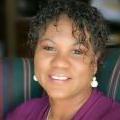
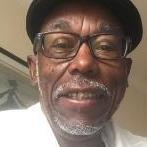
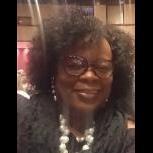
.thumb.jpg.ed52910791d00308abb8c218695bec88.jpg)
